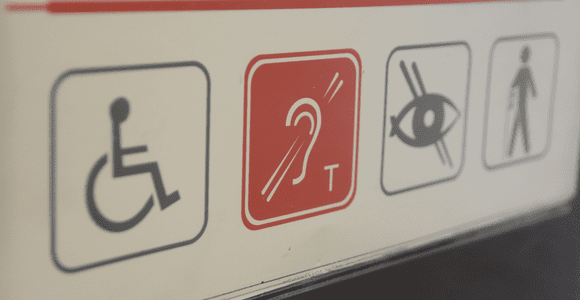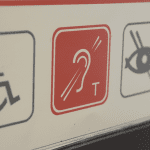Welcome readers! Please subscribe through the button on the right.
(Read this series from the beginning at Part 1 and Part 2.)

When people conflate sin and disability, they make disabilities a synonym for sinfulness or shortcomings. In all four of the canonical gospels, the gospel authors both subvert and strengthen that connection (i.e. blindness, Matthew 15:5; inability to be mobile, John 5; deafness, Matthew 13:15). As we’ve discussed, there are also elements in the gospels that can be interpreted as teaching inherent virtue in suffering, and when applied to people with disabilities, that means teaching they were chosen for disability to fulfill some heroic, good, divine purpose (see John 9:3). Finally, what Eiesland names as “segregationist charity” means keeping people with disabilities at arms’ length while calling for charity and withholding full inclusion and accessible justice from them (see John 19:36; Exodus 12:46; and Leviticus 21:16-23). Some faith traditions prevent disabled people from participating in fully ordained ministry.
It cannot be denied that the biblical record and Christian theology have often been dangerous for persons with disabilities. Nor can the prejudice, hostility, and suspicion toward people with disabilities be dismissed as relics of an unenlightened past. Today many interpretations of biblical passages and Christian theologies continue to reinforce negative stereotypes, support social and environmental segregation, and mask the lived realities of people with disabilities. In recent decades, while the problematic nature of the bible record with regard to women has become generally acknowledged, the degrading depictions of people with disabilities are often ignored or, worse, seen as fundamentally accurate to our experience. An uncritical use of the Bible to address the concerns of people with disabilities perpetuates marginalization and discrimination in the name of religion.” (The Disabled God, p. 74-75)
As Jesus followers, we can and must do better.
I include myself in this. I, too, have conflated disability and sin, promoted the virtues of suffering, and withheld full inclusion in the past.
Our reading this week gives us the opportunity to interpret a gospel story in a life-giving way, one that calls for full accessibility and inclusion.
“When you give a luncheon or dinner, do not invite your friends, your brothers or sisters, your relatives, or your rich neighbors; if you do, they may invite you back and so you will be repaid. But when you give a banquet, invite the poor, the crippled, the lame, the blind, and you will be blessed.”
I love the emphasis in the end of this passage. It’s not that “they” will be blessed. It’s that “you” will be blessed. The text defines that blessing as an extrinsic, extra bestowal of blessing at what Luke’s readers understood in their worldview as a future “resurrection of the righteous.”
What I would rather have us understand is that there is an intrinsic blessing and value that people of varying experiences can bring to a community. When a person has a body that is in some way different or disabled in some way in their society, their inclusion and accessibility would bring an inherent blessing to their community. I do not romanticize a person’s disability. Their disability doesn’t mysteriously infuse them with value, but it doesn’t negate or lessen their value either.
Not all bodies are the same. Not all bodies develop the same way. And no body escapes those events that change our bodies. But every body is valuable; every person has something to bring to the table. When we exclude certain people because of their bodies, our communities are the worse off for it. Not only do those excluded suffer loss from being excluded, but the communities that exclude them also suffer loss because of their absence.
This week, rather than focusing on a future extrinsic “repayment” or reward for including those society often labels as “less than” today, may we all begin so see the value of people, regardless of our differences, and especially when those differences relate to the kinds of bodies we’re each living in. There should be a place at the table for all for all of us, where all of us can bring to our communities what we have to offer, where every one of us gains the blessing of both giving and receiving. The intrinsic value of every person calls us as Jesus followers, especially, to ensure an attitude of inclusion and concrete means of accessibility as well.
I believe this is possible and the spirit of our most cherished Jesus stories calls us to it. To the degree that our communities are accessible to people whose bodies are different or disabled, to that same degree we will intrinsically experience either blessing or loss.














